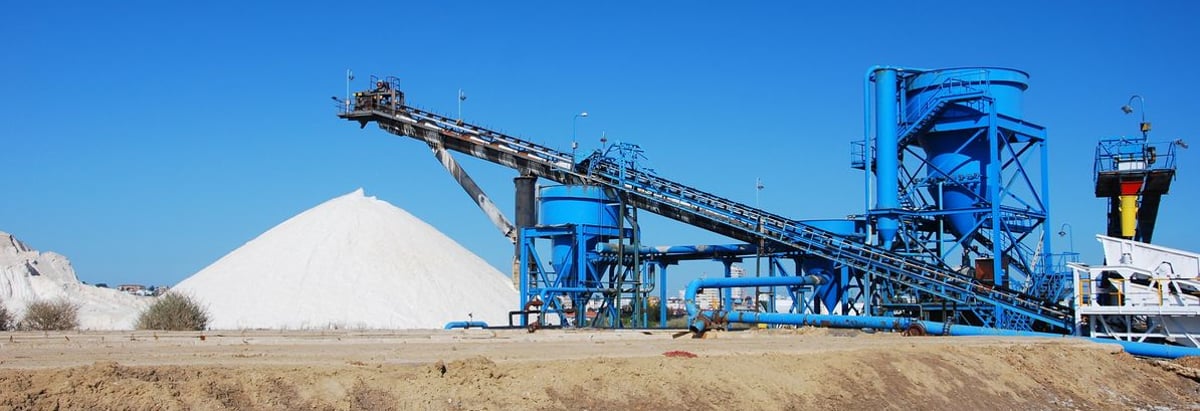Stock Analysis
- Australia
- /
- Metals and Mining
- /
- ASX:TZN
Here's Why Terramin Australia (ASX:TZN) Can Afford Some Debt

David Iben put it well when he said, 'Volatility is not a risk we care about. What we care about is avoiding the permanent loss of capital.' So it might be obvious that you need to consider debt, when you think about how risky any given stock is, because too much debt can sink a company. As with many other companies Terramin Australia Limited (ASX:TZN) makes use of debt. But should shareholders be worried about its use of debt?
What Risk Does Debt Bring?
Generally speaking, debt only becomes a real problem when a company can't easily pay it off, either by raising capital or with its own cash flow. If things get really bad, the lenders can take control of the business. While that is not too common, we often do see indebted companies permanently diluting shareholders because lenders force them to raise capital at a distressed price. Having said that, the most common situation is where a company manages its debt reasonably well - and to its own advantage. When we think about a company's use of debt, we first look at cash and debt together.
See our latest analysis for Terramin Australia
How Much Debt Does Terramin Australia Carry?
You can click the graphic below for the historical numbers, but it shows that as of June 2024 Terramin Australia had AU$51.1m of debt, an increase on AU$29.3m, over one year. However, it also had AU$1.08m in cash, and so its net debt is AU$50.0m.
How Strong Is Terramin Australia's Balance Sheet?
We can see from the most recent balance sheet that Terramin Australia had liabilities of AU$42.8m falling due within a year, and liabilities of AU$16.0m due beyond that. On the other hand, it had cash of AU$1.08m and AU$205.0k worth of receivables due within a year. So it has liabilities totalling AU$57.5m more than its cash and near-term receivables, combined.
Terramin Australia has a market capitalization of AU$103.7m, so it could very likely raise cash to ameliorate its balance sheet, if the need arose. But we definitely want to keep our eyes open to indications that its debt is bringing too much risk. The balance sheet is clearly the area to focus on when you are analysing debt. But you can't view debt in total isolation; since Terramin Australia will need earnings to service that debt. So when considering debt, it's definitely worth looking at the earnings trend. Click here for an interactive snapshot.
Since Terramin Australia has no significant operating revenue, shareholders probably hope it will develop a valuable new mine before too long.
Caveat Emptor
Not only did Terramin Australia's revenue slip over the last twelve months, but it also produced negative earnings before interest and tax (EBIT). Indeed, it lost AU$4.4m at the EBIT level. When we look at that and recall the liabilities on its balance sheet, relative to cash, it seems unwise to us for the company to have any debt. Quite frankly we think the balance sheet is far from match-fit, although it could be improved with time. However, it doesn't help that it burned through AU$4.8m of cash over the last year. So suffice it to say we do consider the stock to be risky. The balance sheet is clearly the area to focus on when you are analysing debt. But ultimately, every company can contain risks that exist outside of the balance sheet. To that end, you should learn about the 4 warning signs we've spotted with Terramin Australia (including 3 which are concerning) .
Of course, if you're the type of investor who prefers buying stocks without the burden of debt, then don't hesitate to discover our exclusive list of net cash growth stocks, today.
Valuation is complex, but we're here to simplify it.
Discover if Terramin Australia might be undervalued or overvalued with our detailed analysis, featuring fair value estimates, potential risks, dividends, insider trades, and its financial condition.
Access Free AnalysisHave feedback on this article? Concerned about the content? Get in touch with us directly. Alternatively, email editorial-team (at) simplywallst.com.
This article by Simply Wall St is general in nature. We provide commentary based on historical data and analyst forecasts only using an unbiased methodology and our articles are not intended to be financial advice. It does not constitute a recommendation to buy or sell any stock, and does not take account of your objectives, or your financial situation. We aim to bring you long-term focused analysis driven by fundamental data. Note that our analysis may not factor in the latest price-sensitive company announcements or qualitative material. Simply Wall St has no position in any stocks mentioned.
About ASX:TZN
Terramin Australia
Engages in the exploration and development of precious and base metals, and other economic mineral deposits in Australia and Northern Africa.


